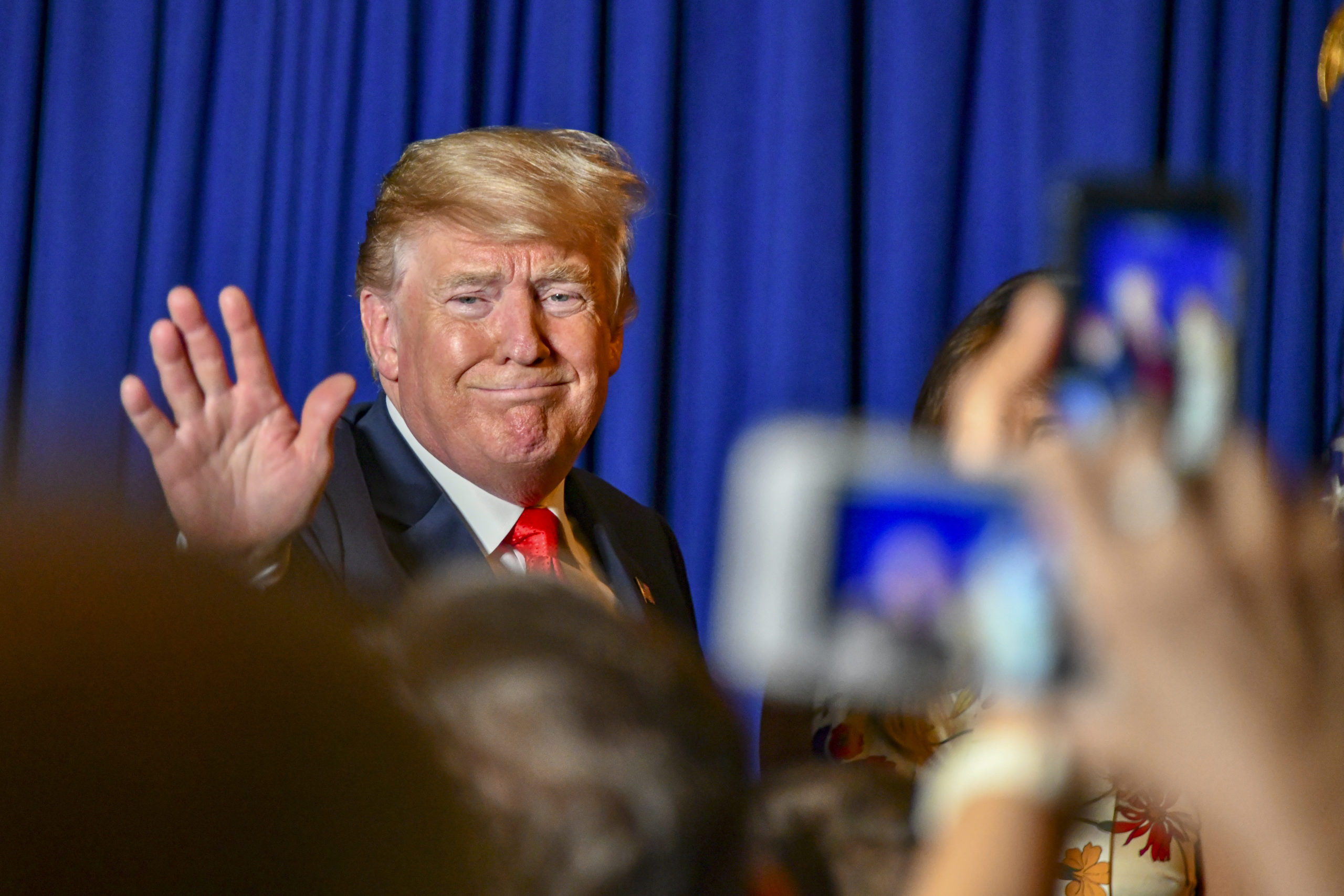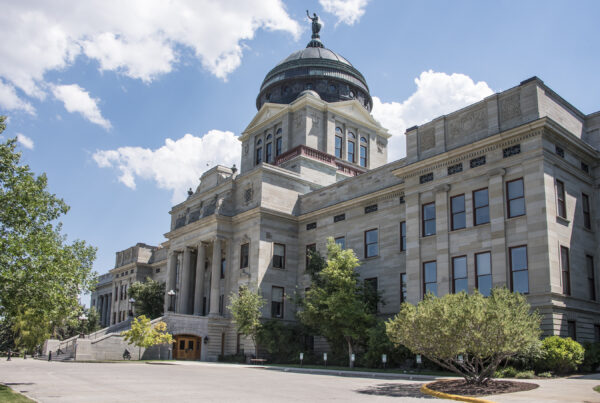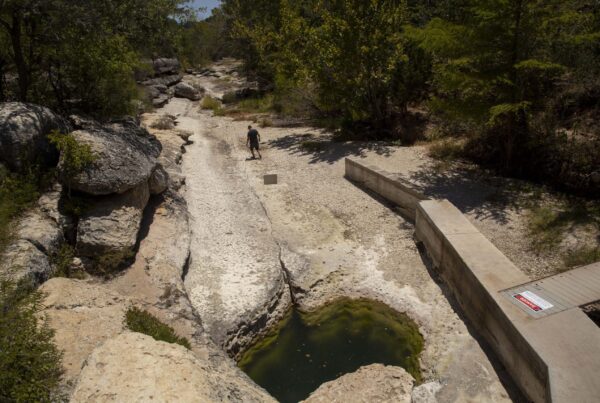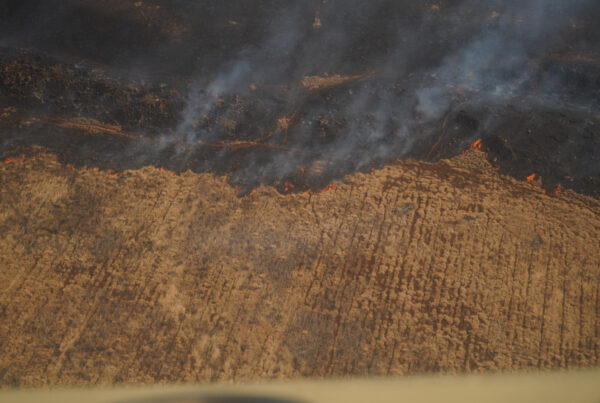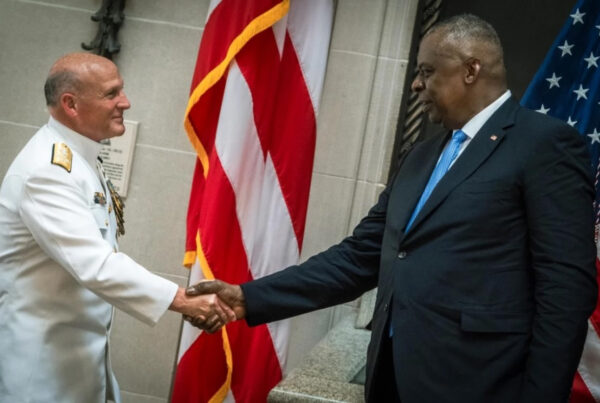Former President Donald Trump has been indicted in Georgia on state racketeering and conspiracy charges. These charges come over efforts to reverse his defeat in the 2020 presidential election.
What should Americans make of the latest legal challenges, and how do they stack up in the context of other indictments in other jurisdictions?
Cynthia Alkon is a professor of law and director of the Criminal Law Justice and Policy Program at Texas A&M. She joined the Standard to tell us more. Listen to the interview above or read the transcript below.
This transcript has been edited lightly for clarity:
Texas Standard: Let’s talk about the fact that now we’re dealing with four jurisdictions in which the former president has been indicted. How do these charges handed down by the Fulton County grand jury in Georgia compare with those previous charges?
Cynthia Alkon: Well, they’re serious charges, just as the two federal indictments are serious charges. Along with the federal indictment out of the D.C. district, they’re serious charges dealing with fundamental subversion of our electoral and democratic process.
It seems as if a lot of people have been indicted in what the prosecutor considers to be an organized crime conspiracy. What is it – 19 individuals, including the president?
Right. A large number of charges filed – 13 – are related to the former president. So, it has all the potential to be a messy courtroom proceeding because you’ve got so many defendants and so many charges and you’re going to count on having a lot of motions.
We’ve already seen a motion to remove it to federal court. That’s just from one of the defendants. This case – because of the number of defendants alone, forget the number of charges, which is also messy – is going to be the most difficult one at the trial level.
Given the size and scope of the case in Georgia – with so many defendants and a lot of attorneys, too – how likely is it that prosecutors are going to be able to get to trial within six months? That’s with election season fast approaching, I would imagine.
Right. You know, if she does it, I will congratulate her on being able to move things that quickly.
I think it’s highly unlikely just because you’ve got so many lawyers involved, all of whom are going to be doing what they’re ethically obligated to do, which is to defend their clients and advocate for them, which is going to mean motions.
There’s going to be motions to remove to federal court. Like I said, we’ve already seen one of those. There’ll be motions on the part of some defendants, I’m sure, to try and sever themselves out from this whole case. We’ll see where that goes and all sorts of other motions down the road.
Who knows? There may even be plea offers with some of these defendants or all of them, and motions surrounding whatever is going on in terms of plea deals. There’s a lot of things that go on before trial in a normal criminal case, and there’s nothing normal about this case. It’s going to have a lot of pretrial motions – many more than you would expect to see in a regular criminal case that’s been brought in any jurisdiction.
The defendant seeking to remove to federal jurisdiction: Mark Meadows, former White House chief of staff. What do you make of that attempt?
There’s potentially a couple of advantages.
One advantage is, then, and it seems clear that Meadows will join it. If it’s removed, he’ll then file a motion to dismiss based on saying that these charges don’t apply. Given what his job was, I think there’s problems with that argument, but I think that there’ll clearly be an argument for it to be dismissed at the federal level.
The second is there’s a perception that there might be a more favorable jury pool if it’s at the federal level as compared to at the local level in Fulton County.
Likely to prevail?
Oh, it’s always hard to predict what a court is going to do. I think it’s unlikely, at least initially. I don’t think this case is going to easily go away for any of these defendants. I don’t think it’s going to easily just all get removed to federal court.


